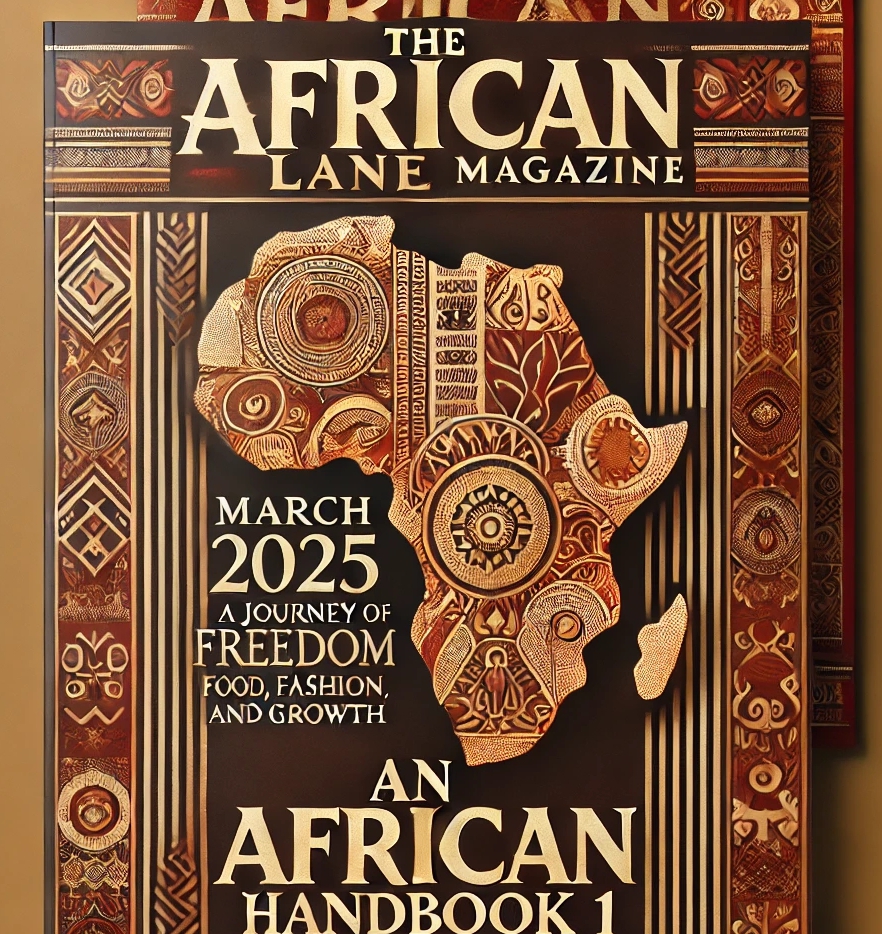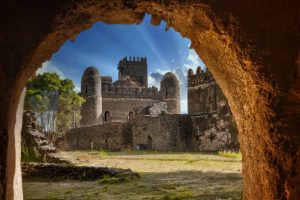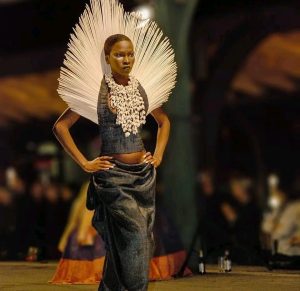Algeria: The African largest country
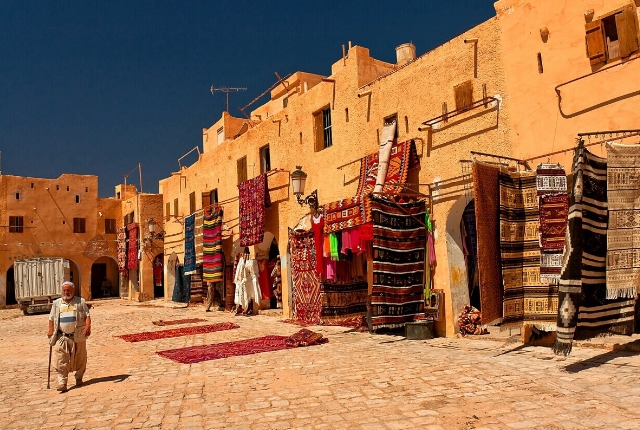
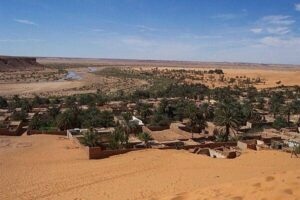
short form: Al Jaza’ir
int’l long form: People’s Democratic Republic of Algeria
int’l short form: Algeria
(pop.) 3 000 000Principal Towns: Oran, Constantine, Annaba, Blida, Setif, Sidi be Abbes.
Type: Republic.
Independence: 5 July 1962 (from France).Geography:
Location: Northern Africa, bordered by the Mediterranean Sea on the north, Morocco, Western Sahara and Mauritania on the west, Mali and Niger on the south, and Libya and Tunisia on the east.
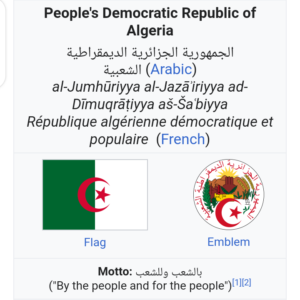
Terrain: Algeria consists of four regions: the coastal mountainous chain. Plains and high plateaus. The mountainous chain of the interior. The area of the Grand Sud with its mountainous solid masses.
Mediterranean in the north, mild, wet winters with hot, dry summers along coast; drier with cold winters and hot summers on high plateau; dry or desert climate for the extreme south of the country; sirocco is a hot, dust/sand-laden wind especially common in summer.
Nationality: Algerian(s).
Ethnic groups: ~ Arab 83%, Berber 17%, Touareg, European less than 1%.
Religions: Sunni Muslim (state religion) 99%, Christian and Jewish 1%.
Literacy: total population, 70%; male 78.8%, female 61% (2003 est.)
Agriculture products: Wheat, barley, oats, grapes, olives, citrus, fruits; sheep, cattle.Industries: Petroleum, natural gas, light industries, mining, electrical, petrochemical, food processing.
Exports – commodities: petroleum, natural gas, and petroleum products 97%
Exports partners:
Spain 18.8%, France 11.2%, USA 8.8%, Italy 8.7%, UK 7.1%, Brazil 5.2%, Tunisia 4.9%, Germany 4.5% (2015)
Imports partners:
China 15.6%, France 14.4%, Italy 9.4%, Spain 7.4%, Germany 5.6%, Russia 4.1% (2015)
Currency: Algerian Dinar (DZD)
Algeria’s indigenous Berber people has been under foreign rule for much of the last 3000 years. The Phoenicians (1000 BC) and the Romans (200 BC) were the most important of these. With the incursion of Muslim Arabs in the 7th-8th century into the region, Islamic influence came to the Berbers and almost a millenium of domination by Arab dynasties.In the beginning of the 16th century the region was placed under protection of the Ottoman Sultan of Istanbul, followed by reigns of Ottoman beys, pachas, and aghas, brought to an end with the beginning of the French colonization in 1830.
The French occupation condemned Algeria’s population to economic, social and political inferiority and caused an armed resistance lasting for decades. After a century of rule by France, Algeria became independent in 1962 and Arabic became official language – with a little help of Quran teachers from Egypt and Saudi Arabia. Since then le pouvoir (“the power”), an elite of business leaders and generals behind a democratic façade has run Algeria.
Algeria is a member state of the League of Arab States
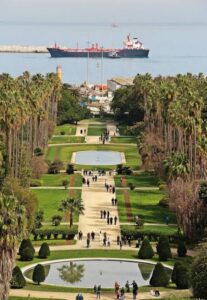
Cultivated from a unique and fascinating blend of French, Mediterranean, and North African flavors, Algerian food is packed with a richness and freshness few cuisines can compete with.
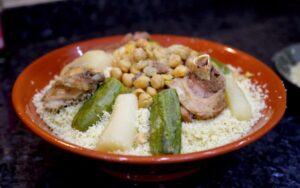
- Couscous – Steamed Semolina with Meat Stew
- Tajin Zitoun – Chicken and Olives Dish
- Kesra – Simple Flatbread with Olive Oil
- Mhajeb – Flatbread with Tomato and Onion Stuffing
- Dolma – Various Vegetables Stuffed with Meat.
- Rechta – Algerian Noodles Served with Broth
- Chorba Frik – Crushed Wheat Soup
- Harira – Tomato Soup
- Chtitha Batata – Potato and Tomatoes Stew
- Bourek – Filled Puff Pastry
- Chakhchoukha – Flatbread Topped with Stew
- Qalb el Louz – Baked Semolina Almond Dessert
- Tamina – Semolina, Honey, and Butter Dessert
- Makrout – Fried Semolina Dipped in Honey
Culture
The culture of Algeria encompasses literature, music, religion, cuisine and other facets of the Algerian lifestyle
Predominantly a Muslim country, Algeria is mostly Islamic with a small population of Christians. This explains the strong influence of Islamic traditions in social norms and etiquette. Ethnic influences are also evident in many aspects of the Algerian culture, especially in the country’s handicrafts.
Rai is the country’s distinctive musical genre. It is characterized by poppy folk tunes. Chaabi music is also popular, along with Andalusi music. Algeria has produced a good number of poets and novelists, including Assia Djebar, whose works are widely translated.
It is customary to take your shoes off whenever entering a home in Algeria and especially in places of worship. This also applies to many buildings, even when camping in the desert. Women must dress modestly, especially in rural areas. If you can, avoid visiting during Ramadan as most people (even your tour guides) observe the fasting tradition. Should you be caught in a police roadblock, follow all instructions with respect. Avoid photographing military personnel and installations.
